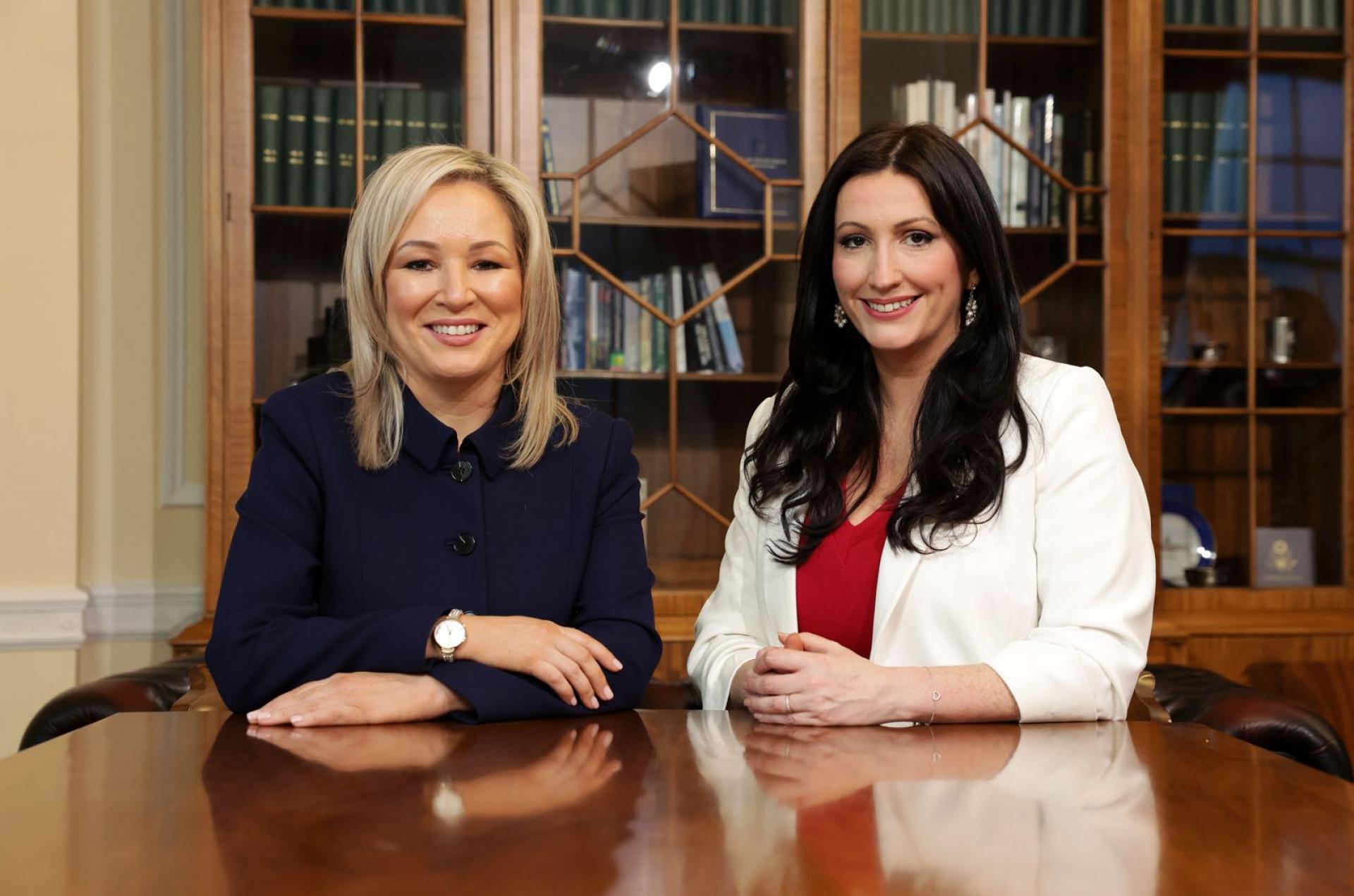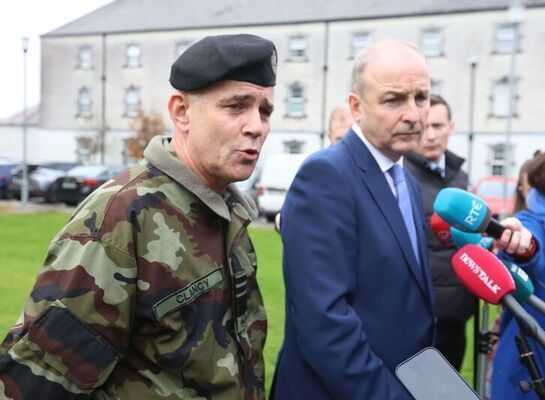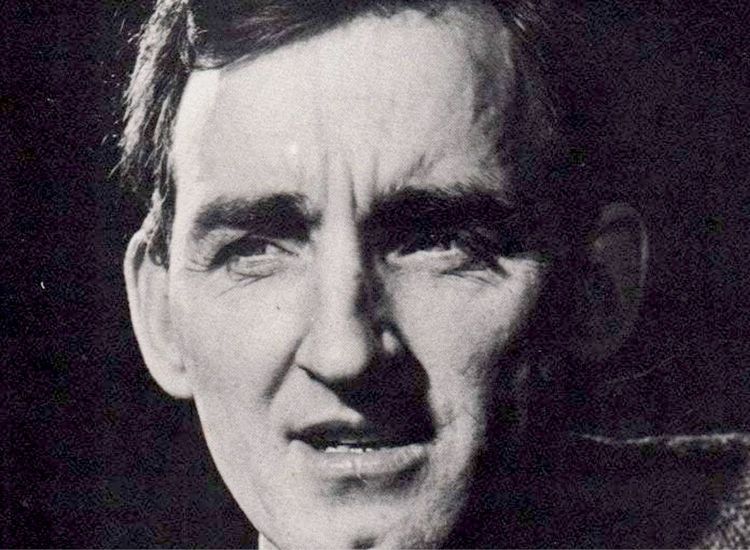The concept of losers’ consent is central to American politics since Donald Trump refused to acknowledge the legitimacy of Joe Biden’s victory in the last presidential election.
It also provides an important prism on political developments in Northern Ireland, although not in arguments about election results.
While David Trimble, the leader of the Official Unionist Party, played a central role in negotiating The Good Friday Agreement (GFA), many unionists viewed the terms of the deal as a sell-out to Irish nationalism.
In particular, they looked askance at provisions that mandated the release of all IRA prisoners and the replacement of the Royal Ulster Constabulary with the Police Service of Northern Ireland.
Naomi Long.
Naomi Long, the Alliance Party leader, is pessimistic as she bemoans: “the fragility of relationships, not just between the parties but inside some parties.”
Although many international leaders justifiably laud the 1998 agreement, which has largely ended the Troubles in Northern Ireland, a recent poll revealed that only 34% of unionists view it favorably. They still believe after twenty-five years that the other side, nationalists and republicans, are the main beneficiaries.
Many commentators see a blatant contradiction in the Protestant reaction to the agreement. Sinn Féin, the political wing of the IRA, consistently identified as their core belief that the northern state is a failed political entity, contrived to divide the people, and so the only solution, according to their ideology, must involve British withdrawal followed by some kind of united Ireland.
Furthermore, they believed firmly that compelling Britain to exit Ireland could only be achieved using the bomb and bullet. In the GFA, Republicans promise to give up this central plank of their philosophy and to rely solely on the ballot box to achieve their goals.
They affirm now that their weapons have been decommissioned and that a united country can only be achieved by political persuasion. Northern Ireland will remain part of the United Kingdom until a majority of the people in the North opt for change.
This significant concession by the Provisional movement was the main point of contention with the two protesting republican offspring named the Real IRA and the Continuity IRA. Based on maintaining the pristine purity of past rhetoric, these small groups claim that they have traditional republican logic on their side. Partition is still in place, so the war must go on!
Unionists made clear during the Troubles that they would never allow a united Ireland which was and still is contrary to the wishes of the majority. The GFA solidifies this position, but their paranoid mentality seems to turn victory into fear-driven trepidation about losing. Any change from the status quo must be resisted.
Since the partition of the island over a hundred years ago, the unionist majority has behaved like a beleaguered tribe while dominating political life in the Six Counties. The Ulster Covenant of 1912, a document signed by a quarter million people, and backed by an armed Protestant volunteer force of over 100,000 men, threatened to use any means necessary to prevent Irish Home Rule.
Edward Carson, the unionist leader in Westminster and a member of the powerful British government cabinet during the Great War, warned the prime minister and the government leaders that his constituents were deadly serious when they proclaimed that they would die rather than submit to rule by a Dublin parliament where Roman Catholics would inevitably dominate.
While the Westminster government, led by Lloyd George, showed little sympathy or respect for the demands of Irish nationalists, they realized that dividing a small island at the behest of a loud and persistent minority was a recipe for future tumult. Still, they disregarded the long-term implications of partition and caved into unionist threats, political and paramilitary.
On June 22nd, 1921, King George V pleaded for harmony when he officially opened the Belfast parliament. Nobody doubted when Sir James Craig, the first prime minister, declared his leadership of a Protestant parliament for a Protestant people, which, according to his explicit boast, would continue forever, ad aeternum.
Not even the wildest nationalist dreamer from the past could imagine a day when the First Minister in the parliament descended from the Craig/Carson creation would be a devoted Irish Republican whose father had served time for “the cause.”
We have had James Craig, Basil Brooke, James Chichester-Clark, all bulging with ascendancy titles, and now Michelle O’Neill, with a strong Republican pedigree, a nationalist leader from a working-class background.
The Good Friday Agreement wisely doesn’t allow for the winner-take-all system that prevails in most democracies. The binary unionist/nationalist division must be represented at every government level. It does not allow for the domination that prevailed in the past.
There is now an important third space occupied mostly by young, well-educated citizens who no longer subscribe to the ethos that divides people according to religious affiliation.
These voters often support Alliance candidates. This party promotes its non-sectarian agenda with pride, and its support continues to grow in both communities. They do not take sides on the constitutional issue that bisects the rest of the statelet. It is hard for any political party in the North to eschew the unity question, but Alliance manages so far to stick to this non-position.
The biggest obstacle to success will come from the strong rejectionist wing of the Democratic Unionist Party. Their leader, Jeffrey Donaldson, has spent two years trying to alter the terms of the Windsor Agreement signed by leaders in Brussels and Westminster. However, the changes he negotiated are only tangential, and his hardliners are raising the old cries of a sellout.
Naomi Long, the Alliance Party leader, is pessimistic as she bemoans: “the fragility of relationships, not just between the parties but inside some parties.” She shakes her head as she sees major obstacles in the immediate future.
Michelle O’Neill, the Sinn Féin First Minister, consistently focuses on neglected internal issues like health care and education. She shares leadership in the resuscitated parliament with another woman, Emma Little-Pengelly, a member of the Democratic Unionist Party, who is equally adamant that they must set aside constitutional arguments and concentrate on bread-and-butter issues.
Early signs are promising that these two talented women can lead Northern Ireland in a different direction. We hope the wind will blow strongly on their backs.










